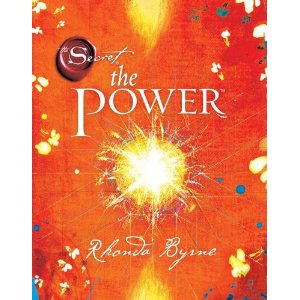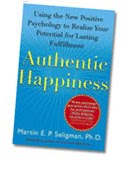Google Etiquette
Of late I listen to an audiobook: Paramahansa Yogananda on the Bhagavad Gita, as explained by his disciple, Swami Kriyananda. The Gita is one of the great scriptures of enlightenment, a conversation between Krishna the God of Love and Arjuna the universal devotee, right at the moment when Arjuna beholds a civil war in which he is supposed to fight.
“Brother against brother, cousin against cousin, how can I fight in this terrible battle?” Arjuna asks, his heart breaking. Krishna has an answer, and Yes, Arjuna is supposed to fight. This life is a play of shadows, rebirth is a certainty, consciousness is evolving, at one level, we must live out our dharma.
I’m not sure I totally agree with Krishna’s answer. One scripture or another is always in hand, and I always debate with it in my head. I am on a journey and I don’t have answers, I have questions, and boy oh boy, do I have a lot of opinions. Just because some holy person centuries ago wrote something doesn’t mean I have to buy it. Used car salesmen, the lot of them. Prophets, scribes, proselytizers, and disciples, all selling their brand of God. As if God could be a brand. Or defined by any one person, one path, or one book.
My husband Sabin finally forbade me to read the Tibetan Book of Living and Dying at bedtime, because it riled me up. I’d try to draw him into a debate and then sleep restlessly, arguing in my dreams. But I don’t think we’re supposed to take any gospel literally. It’s my opinion that we’re supposed to struggle with the words of God, all of us like Jacob wrestling the Angel of God. Finally, a blessing is bestowed.
Another of the great scriptures that has a longtime spot on my nightstand is The Yoga Aphorisms of Patanjali. I like Patanjali’s work because it’s methodical. He gives a practical curriculum for advancing in consciousness. I want to get there from here–don’t ask me where ‘here’ and ‘there’ are, what progress consists of, or how it is measured. I’ll send a postcard when I’ve arrived. Meantime, there are these paths. Ahimsa, nonviolence, is one of the crucial ones.
For the last few years I’ve undertaken ahimsa in my language. Specifically, refraining from the violence of dishonesty. Honesty comes easily to me, but sometimes too bluntly. I tend not to tell lies. But I can tell truths with a sharp edge. So the deeper, more textured layers of this issue fascinate me, eg, the small dishonesties that pass for social courtesy. Because kindness matters, too. Kindness is the crux.
How do I tell a scrupulous truth without hurting someone’s feelings? For example, how do I refrain from saying that a haircut or dress is flattering, when it’s butt ugly? How do I negotiate my simultaneous responsibilities to the truth and to kindness?
Which put me in a sticky situation recently, when I visited with someone who I knew had googled me. This person asked me what I did, as if it were unknown. Well, the spouse had googled me. Marriage being what it is, I assume the spouse had shared information about me.
There is a crude but effective invisible hit counter on my website. It gives useful stats about visitors to my site: how many page loads, what state or country. Usually the information is pretty anonymous. I can tell that someone using Verizon internet in New York state was on my site, for example. It’s great fun to see hits from distant countries.
Sometimes a large company or institution names their ISP network after themselves, so the name of that institution or company appears. For a while, my middle daughter had my website set as her default Safari page on her macbook. I knew when she took her computer to school and played on it, because a user on her school’s network would pop up on my counter.
The day before the visit with my new acquaintance, who is a lovely person, my counter showed the name of the company where the spouse works. Now, this isn’t a small company; it took me a while to figure out who at that company might have been interested in me. But it’s not that hard. I went to the company’s website and took a look at the page on their employees. One of the names matched a name on a list of people I’d been given, some of whom I’d also googled.
So, out of truthfulness and kindness, what am I supposed to do when someone pretends they know nothing about me, but there’s an indication that they’ve googled me?
In this instance, surprised, I opted to play dumb. I said that I was an author. And then eventually the conversation came around to spouses, and since I’d taken that first step into the shadows, I asked what the spouse did. As if I didn’t know. It was distressing to be in this position, holding hidden information like a steaming potato. I felt like a liar. That’s not who I want to be.
But if I admit to googling, do I seem like a stalker? If I admit to googling and the other person doesn’t, do I position them as dishonest, which is unkind? If I mention that I know that they’ve been on my website, is that a violation of privacy, another unkindness?
What are the rules of kindness and honesty in the world of immediate information via google and statcounters? What would Krishna or Jacob’s Angel have to say about the virtual world?
The day after that visit, I had a business meeting with a married couple who told me straight out, up-front, no BS that they’d googled me, been on my website, and watched the video clip. It was a great relief. It made me like and trust them. It seemed to me that the universe had sent me this latter experience as a foil to the prior one, to illustrate for me the way that I was supposed to follow. The Universe works that way, with care and great intelligence, for seekers and strugglers.
From now on, I’ll confess straightaway to my nefarious googling and statcounter information. Hopefully I’ll be able to do it with courtesy and tact. That’s my growing point.











